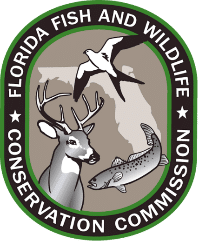What is an invasive species? A beautiful threat.
Native to the Indo-Pacific, lionfish are a nonnative, invasive species to Florida, including in Lake Worth Lagoon. Lionfish were first reported offshore Florida’s coast in 1985 near Dania Beach. Since then, they have become established in the Atlantic Ocean, Gulf of Mexico and throughout the Caribbean Sea.
As an invasive species, lionfish were introduced into an area (Florida) to which they were not native and in which they can negatively affect other fish and wildlife that are native to the area.
Invasive species can also pose a threat to human health and safety, or cause damage that is costly to repair. While lionfish may appear beautiful with their unique, bright coloration, people should use caution around them. Lionfish possess 18 venomous spines that can cause pain and swelling. There have been no reported deaths from a lionfish sting.
Lionfish can be found in different habitats including artificial and natural reefs, estuaries, mangroves and seagrass beds. They are bottom-dwellers and prefer areas with ledges. The greatest densities of lionfish are generally found in water depths greater than 75 feet, however these fish can live in shallower waters and as deep as 1,000 feet. These hardy predators can significantly reduce the numbers of other young marine life and reduce the diversity of life within a variety of Florida habitats. While lionfish have no known consistent predators in their invaded range, they prey on over 90 different marine species.
Help stop the invasion.
We can each make a difference. Explore more about invasive species, including lionfish, and find out what you can do to help address the challenges they create.
Don’t release your pets! Releasing invasive species is prohibited in Florida and can permanently alter native ecosystems.
Report your sightings. Report a lionfish sighting or harvest to interested organizations and agencies. Find details at MyFWC.com/Lionfish.
Consider participating in lionfish derbies and tournaments. Help reduce local lionfish populations by participating in these types of events in your area.
Discover lionfish as seafood. Several Florida restaurants, seafood markets and grocery stores serve or sell commercially-harvested lionfish. To learn more, visit MyFWC.com/Lionfish.
*Our lionfish exhibit at Manatee Lagoon was provided with funding from FWC and Friends of Manatee Lagoon.

